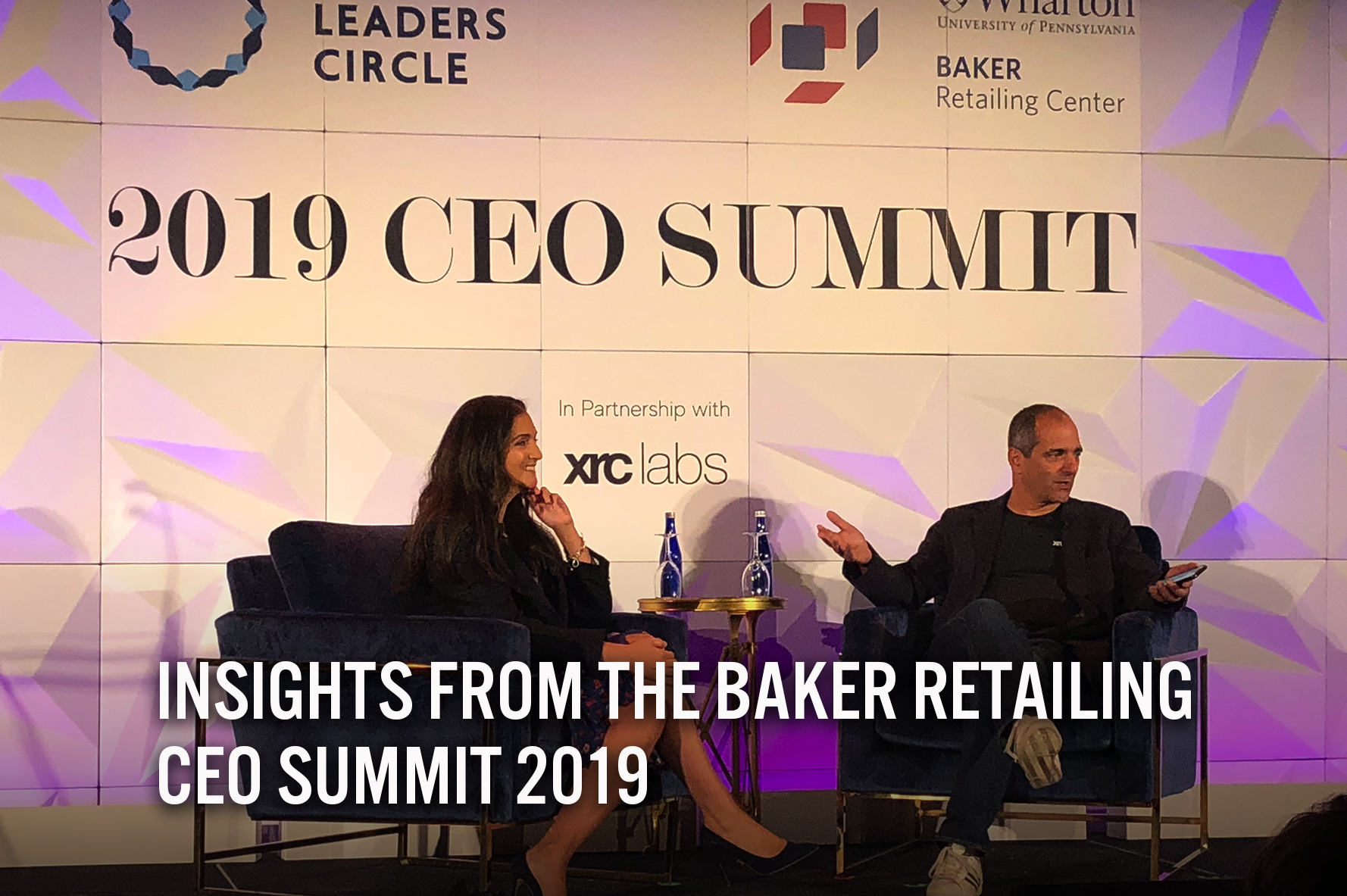
Nitheesh NH
This year, the theme of The Wharton School’s Baker Retailing Center CEO Summit in New York City centered around powering the future of retail in a changing environment. We discuss our key highlights.
Luxury Brands and Retailers Are Becoming Emotionally Connected with Consumers.
Marc Metrick, President at Saks Fifth Avenue, shared that the company is hyper focused on luxury. Although there have been new entrants to the market over the past 15 years, Metrick stated that Saks is unthreatened, due to its “strong fashion authority” and high-quality services. Luxury retailers are increasingly looking to offer customers a unique shopping experience and are therefore becoming less transactional and more emotionally connected with shoppers. Metrick also emphasized resale as a big opportunity for Saks moving forward.
Reiterating that connecting with shoppers is a priority for the luxury sector, Laurent Claquin, President at Kering Americas, highlighted that brands and retailers should be considering the social values of their consumers, namely sustainability. Brands should look to strike a balance between creativity, sustainability and financial performance. According to Claquin, Kering is committed to restoring biodiversity and protecting the oceans: Kering is a signatory of The Fashion Pact, alongside 55 other companies.
Rental Services Are Extending into the Apparel Sector.
The rental business has extended beyond property online marketplace Airbnb, and a number of apparel companies are now offering rental or subscription services. The concept is especially appealing among younger consumers, giving them opportunities to refresh their wardrobe frequently. CaaStle is a fully managed service that enables retailers to offer a rotating apparel collection to customers. John Donoghue, Senior VP of Corporate Development at the company, commented that shoppers are moving towards an “access and experience” model, through which they engage with brands through ongoing services rather than isolated transactions.
Retailers Are Focusing on Improving the Customer Experience to Increase Loyalty.
Emphasizing the importance of connecting with consumers, Shea Jensen, Senior VP of Customer Experience at Nordstrom, commented that the company does not have a digital or store strategy but rather a “customer strategy,” which is focused on personalizing the shopping experience. Nordstrom is making efforts to meet customers wherever they shop, both online and offline. As part of this strategy, Jensen highlighted that in-store sales associates are “an asset,” as they provide shoppers with a personal touchpoint to the retailer. Nordstrom has also partnered with digitally native brands because it believes that they understand their customers well and move fast.
Mike George, President and CEO of the Qurate Retail Group, stated that the group—comprising eight leading retail brands—has a mobile, digital-first strategy, with 40% of its sales coming from mobile commerce. The group provides a “Third Way to Shop,” which centers around creating engaging shopping experiences rather than providing transactional e-commerce or traditional physical retail.
Food Retail Is Entering a New Era.
In the grocery sector, Jessica Adelman, Group VP of Corporate Affairs at supermarket chain Kroger, highlighted that private labels are an important segment, and Kroger has a “good, exclusive selection” for shoppers. For the company’s Simple Truth brand of natural and organic products, around 90% of transactions are captured on loyalty cards. Helping to maintain Kroger’s customer base of 11 million shoppers per day, the company’s loyalty program is intended to increase convenience for its members by offering digital coupons, dynamic grocery lists and fuel points. Adelman stated that the company is also looking to leverage emerging consumer preferences for higher-quality, higher-priced products, particularly in the health and wellness category. In addition, responding to customers’ growing awareness of corporate social responsibility, Kroger is committed to eliminating all waste, including food, across the company by 2025.
Other changes in the sector could include the growing use of e-commerce. According to Zak Normandin, Founder and CEO of Iris Nova (parent company for beverage brand Dirty Lemon), 70% of millennials will purchase all of their groceries online by 2023.
Walmart Is Looking Ahead To Long-Term Success.
Marc Lore, President and CEO of Walmart eCommerce US, explained that the company’s goal is to have its online platform be a “destination” for consumers. This means that building a relationship with shoppers is the primary focus for Walmart, even if that means that 10,000 products on the platform lose money in the short term. The retailer therefore has a “long tail” to its assortment through which it can maximize profits. Targeted marketing is also critical to build an expansive customer base.
Walmart also sees technological innovation as a core component to long-term success. The retailer has invested in several startups—such as cybersecurity think tank Team8 and fresh produce supply chain startup Ninjacart—although some were shut down after only two years. Lore believes that even though it may take five years for a startup to become profitable, technology “wins eventually,” and augmented and virtual reality “is the future.”